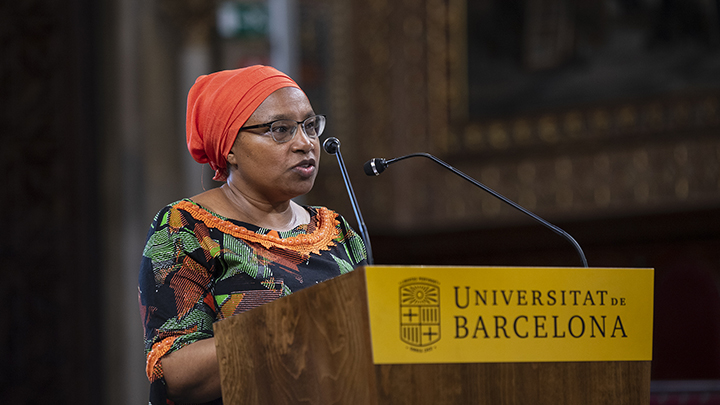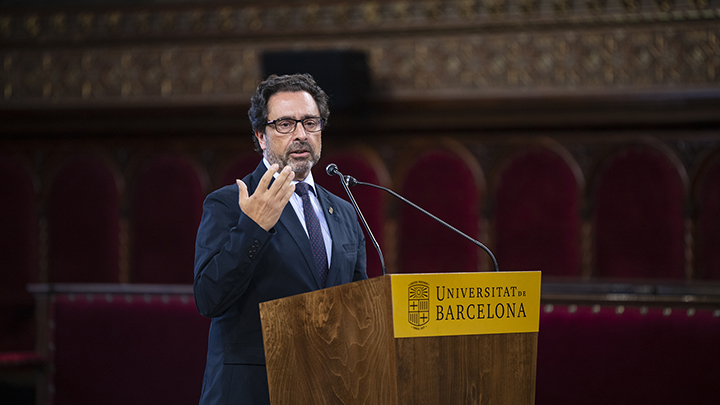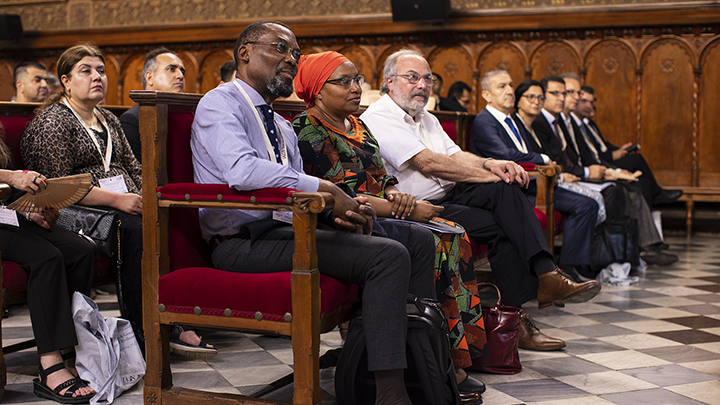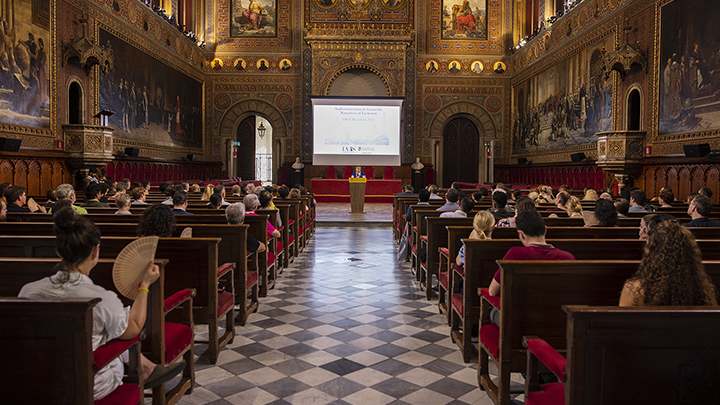Alice Wairimu Nderitu, United Nations special adviser on the prevention of genocide: “There is a growing problem regarding hate speech around the world”

Solidarity
|
News
|
Solidarity
(13/07/2023)
Alice Wairimu Nderitu, United Nations special adviser on the prevention of genocide, gave a conference at the University of Barcelona in the opening of the international conference “Authoritarianism and Genocide: Narratives of Exclusion”. In her speech, she reflected on the proliferation of hate speeches; defended education as the best way to prevent them and valued the role of women when defending society as a whole against these speeches which lead to violence.

Solidarity
|
News
|
Solidarity
13/07/2023
Alice Wairimu Nderitu, United Nations special adviser on the prevention of genocide, gave a conference at the University of Barcelona in the opening of the international conference “Authoritarianism and Genocide: Narratives of Exclusion”. In her speech, she reflected on the proliferation of hate speeches; defended education as the best way to prevent them and valued the role of women when defending society as a whole against these speeches which lead to violence.
Is hate speech a growing problem?
There is a growing problem of hate speech around the world. People are becoming more intolerant to each other; they trying to stay with those who look like them and speak like them. We see how these hate speeches often turn into hate crimes: people begin by saying “We hate these people”, and the next thing is that they kill them or try to harm them. I must say that hate speech is considerably higher now because of social media. By the time it takes social media to detect a message and realize it is hate speech, it reaches quite a number of people before it gets deleted.
We have prevention tools —such as speech analysis. We can detect the areas where this speech has peaked through the analysis of the media. We also look at textbooks, because they often carry one side of a story: if there was a war, they only tell history from one point of view.
What is the best prevention policy?
I think teaching is very important both for the family (parents, grandparents or whoever is the guardian, whoever is around the children), and the schools. Children need to be taught that difference should not be feared, that difference adds value, and that if we are all the same the world would not be the way it is. However, at the same time, laws need to be followed. Countries have laws against incitement, insults… and we need to pay attention. Many times, you find that this attention is paid to larger crimes: robbery with violence, murder… as it should be, but there needs to be an understanding that if we ignore the insults, if we ignore the incitement, that actually leads to a major crime.
What role do women play when trying to avoid hate speech and violence in general?
We just launched a plan of action for women. We know they are on the front line of receiving hate speech, including gender violence and online-based violence. Especially women who are in public positions. One of the things that women can do is to develop a language that counters this hate speech. Another thing is the work women can do from their job positions. We know there are jobs, such as teaching or nursing, in which most of the employees are women. From these positions, women can defend themselves against hate speech, and defend not only ourselves but society as a whole.
There is a growing problem of hate speech around the world. People are becoming more intolerant to each other; they trying to stay with those who look like them and speak like them. We see how these hate speeches often turn into hate crimes: people begin by saying “We hate these people”, and the next thing is that they kill them or try to harm them. I must say that hate speech is considerably higher now because of social media. By the time it takes social media to detect a message and realize it is hate speech, it reaches quite a number of people before it gets deleted.
We have prevention tools —such as speech analysis. We can detect the areas where this speech has peaked through the analysis of the media. We also look at textbooks, because they often carry one side of a story: if there was a war, they only tell history from one point of view.
What is the best prevention policy?
I think teaching is very important both for the family (parents, grandparents or whoever is the guardian, whoever is around the children), and the schools. Children need to be taught that difference should not be feared, that difference adds value, and that if we are all the same the world would not be the way it is. However, at the same time, laws need to be followed. Countries have laws against incitement, insults… and we need to pay attention. Many times, you find that this attention is paid to larger crimes: robbery with violence, murder… as it should be, but there needs to be an understanding that if we ignore the insults, if we ignore the incitement, that actually leads to a major crime.
What role do women play when trying to avoid hate speech and violence in general?
We just launched a plan of action for women. We know they are on the front line of receiving hate speech, including gender violence and online-based violence. Especially women who are in public positions. One of the things that women can do is to develop a language that counters this hate speech. Another thing is the work women can do from their job positions. We know there are jobs, such as teaching or nursing, in which most of the employees are women. From these positions, women can defend themselves against hate speech, and defend not only ourselves but society as a whole.
Multimedia gallery



